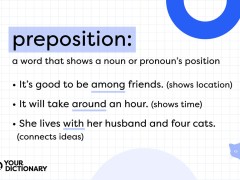commonplace [ˈkɔmənpleis] adj. 平凡的
【例】Sometimes the commonplace things are what people want.
有时候那些不起眼的东西才是人们想要的。
【扩】characterless 平凡的,无特征的
aberrant [æˈberənt] adj. 脱离常轨的,异常的
trivial [ˈtriviəl] adj. 微不足道的
predominant [priˈdɔminənt] adj. 占优势的,起支配作用的
【派】predominantly 主要地
【扩】regnant 占优势的,占支配地位的
* * *
A: Which do you think is the predominant partner of them two?
B: I'm afraid I don't know.
A:你看他们俩之中谁占支配地位?
B:恐怕我不知道。
* * *
manifest [ˈmænifest] adj. 明显的
【扩】palpable 明显的,易察觉的 evident 明显的,明白的
* * *
A: Fear was manifest on his face.
B: Do you mean he is the real murderer?
A:他脸上显露出恐惧的神色。
B:你是说他才是真正的凶手?
* * *
pristine [ˈpristiːn] adj. 纯洁的,质朴的
【扩】unvarnished 质朴的,无修饰的
* * *
A: She tells stories with pristine language in the book.
B: It must be very touching.
A:她在书中用质朴的语言讲述着一个个的故事。
B:那一定很动人。
* * *
stereotype [ˈsteriətaip] n. 陈规
【例】He doesn't conform to the usual stereotype of the city businessman.
他不是典型城市商人的那个样子。
vernacular [vəˈnækjulə] n. 方言
【扩】dialect 方言 localism 方言
* * *
A: It's forbidden to communicate with vernacular here.
B: Sorry, I didn't know it before.
A:在这儿不许用方言交谈。
B:对不起,我之前并不知道这一点。
* * *
accommodation [əˌkɔməˈdeiʃn] n. 适应
【例】We have to make an accommodation to the wartime condition then.
我们那时候必须适应战时的条件。
incumbent [inˈkʌmbənt] adj. 义不容辞的,有责任的
【扩】bounden 必须负担的 responsible 有责任的
【搭】be incumbent on sb. to do sth. 某人有责任做某事
* * *
A: It's incumbent on you to warn them.
B: But I can't get in touch with them now.
A:你有责任告诫他们。
B:但是我现在联系不上他们。
* * *
preliminary [priˈliminəri] adj. 初步的
【搭】preliminary to 在……之前
【例】Our preliminary research only covered existing users of our products.
我们的初步调研只是在产品现有的用户中进行。
proposition [ˌprɔpəˈziʃən] n. 主张
【扩】viewpoint 主张,看法 assertion 主张,论断
【搭】a tough proposition 一件棘手的事情
* * *
A: It's not an easy proposition.
B: But nobody knows how to deal with it except you.
A:这件事不好办啊。
B:但是除了你没有人知道怎么处理啊。
* * *
preference [ˈprefərəns] n. 优先(权)
* * *
A: The elder son has preference over the younger one.
B: I think it's unfair.
A:长子较之非长子享有优先权。
B:我认为这不公平。
* * *
controversial [ˌkɔntrəˈvəːʃəl] adj. 引起争论的
【扩】moot 有争议的,未决的
* * *
A: Do you have anything to be discussed?
B: Yes, the most controversial issue is the overtime pay.
A:你们还有什么要讨论的问题吗?
B:是的,最具争议性的话题是加班费。
* * *
cactus [ˈkæktəs] n. 仙人掌
termite [ˈtəːmait] n. 白蚁
nebula [ˈnebjulə] n. 星云
variant [ˈveəriənt] adj. 不同的
【扩】varying 不同的
【搭】a variant form of a word 异体字
* * *
A: You must pay attention to the variant spellings of the words.
B: I will be careful when I read them.
A:你要注意这些单词不同的拼法。
B:看到它们的时候我会小心的。
* * *
barbarian [bɑːˈbeəriən] n. 野蛮人
pagan [ˈpeiɡən] n. 异教徒
sophisticated [səˈfistikeitid] adj. 老练的
【扩】veteran 老练的 tactful 老练的
【反】unsophisticated 单纯的
* * *
A: You look very sophisticated in the suit.
B: The tailor makes the man.
A:你穿上这套西装看起来非常老练。
B:人靠衣装嘛!
* * *
premise [ˈpremis] n. 前提
【派】premises 营业场所
【搭】on the premise of 在……的前提下
* * *
A: We must act on the premise that the worst thing might happen.
B: OK. I will notice everyone to get prepared for it.
A:我们必须在可能发生最坏事情的前提下行动。
B:好的,我会通知每一个人都做好准备的。
* * *
supernatural [ˌsuːpəˈnætʃərəl] adj. 超自然的
adjective [原级]平凡的,不足为奇的;平庸的,陈腐的 - Inter-racial marriages have become commonplace.
noun [具体名词]司空见惯的事,常见的东西;老生常谈,陈词滥调 - Simpson's much vaunted discoveries are in fact commonplace in modern sociology.
verb [vt. 及物动词]显示,表明;(鬼魂或神灵)显灵,出现;(病症)显现;把…列入货单 - If you manifest a particular quality, feeling, or illness, or if it manifests itself, it becomes visible or obvious.
adjective [原级]明显的,显而易见的 - Manifest is also an adjective.
noun [集合/集体]旅客名单,载货清单;货运列车编组清单 - Your first edit is to the manifest file.
noun [专属名词]模式化的思想,老一套;公式化人物;铅版,铅版浇铸,铅版印刷 - There's always been a stereotype about successful businessmen.
verb [vt. 及物动词]对……形成刻板的看法,(尤指)对……有成见;使用铅版 - He was stereotyped by some as a renegade.
noun [抽象名词]主张,观点;(尤指商业或政治上的)提议,建议;(美国的)法律修正案;欲做的事,待处理的问题;(数学或逻辑)命题;(尤指被视作有冒犯性的)性交提议,求欢 - Making easy money has always been an attractive proposition.
verb [vt. 及物动词]向(某人)提议;(尤指冒犯地)提出与……性交,向……求欢 - As a business proposition, it's a non-starter.
noun [抽象名词]精明老练;(人的)高度文化修养;(机器、方法的)精密,复杂,先进;诡辩 - It would take many decades to build up the level of education and sophistication required.
noun [抽象名词]前提,假设;(企业或机构使用的)房屋及土地(premises);上述各项 - A premise is something that you suppose is true and that you use as a basis for developing an idea.
verb [vt. 及物动词]以…为基础,以…为前提;预先提出,事先提到;<古>声明,说明 - His reasoning is based on the premise that all people are equally capable of good and evil.





